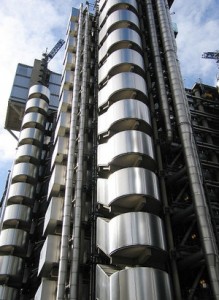The chief executive of the Lloyds of London insurance market believes that the industry faces the “perfect storm” this year. In his speech to the Insurance Day London Summit, Lloyds CEO Richard Ward stated that the insurance industry is already under pressure even before the U.S. hurricane season begins June 1. The Deepwater Horizon oil spill is likely to cost the insurance industry $3.5 billion, making it the largest insured loss in the energy sector since the 1988 explosion of the Piper Alpha rig in the North Sea. The implications of the precedent are likely of serious concern to the Lloyds market, given that Piper Alpha precipitated the spiral of reinsurance losses that brought Lloyds to the brink of insolvency in 1992. Swiss Re estimates its share of the oil spill loss to be $200 million; Lloyds will issue its own estimate by month-end. As reinsurers will absorb most of the losses related to the oil spill, they will increase premiums assessed to direct insurers that will, in turn, raise insurance premiums on personal and commercial policyholders. What drives the rate hikes is not just the absolute magnitude of losses, but their occurrence in combination with low investment returns. Insurers collect premiums to cover risks and invest those premiums to generate returns from which claims will be paid. For the insurance industry, the combination of high underwriting losses (such as the oil spill, the Chilean earthquake and other disasters of 2010) with low interest rates can be fatal. This is what the Lloyds CEO meant when he referenced the “perfect storm”. Of course, what is particularly worrisome is that the insurance industry is under pressure in 2010 even before the start of the U.S. hurricane season. What does this mean for small businesses? If you can renew your coverage sooner rather than later, you might avoid rate hikes almost certain to follow later in the year.
